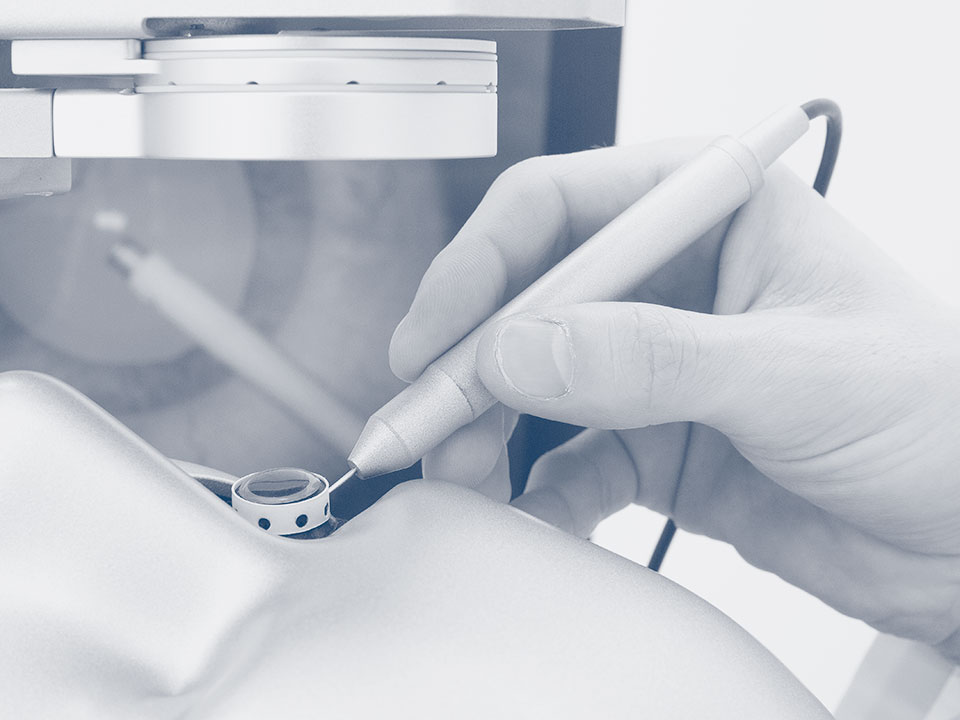Training description
At the Barraquer Institute, we are committed to innovation applied to learning with tools such as 3D virtual surgery tools. You can use this cutting-edge technology to access an interactive training programme in diagnosis and surgical skills. You will be able to operate as much as you need, without any risk to real patients, until you acheive the desired results.
We train professionals who are highly qualified in ophthalmic subspecialisms.
Characteristics
Interactive and latest generation 3D Simulator: Equipped with a microscope set to work on stereo and a cataract surgery interface for a most realistic experience. Dive into a realistic virtual environment that replicates cataract surgery procedures with a cataract surgery interface and an equipment which simulates the head of a pacient.
Structured training: The enabling program is imparted in a structured manner, guiding you step by step toward the desired stardards of accomplishment.
Adaptive contents: All contents are adaptive according to your level of competence, ensuring a personalized and effective learning process.
Thorough evaluation: At the end of each session, the simulator will provide a thorough evaluation and a detailed skill-assessment report to mesure your progress.
Packs duration:
- 5 hours (minimum)
- 10 hours
- 20 hours
- 30 hours (maximum)
Mentored training: You’ll be receiving an initial training from an ophthalmologist instructor, as well as having at your disposal a number of consultation hours to benefit from during the time of your stay. Request further information to know which training package best suits your needs.
Cataract training modules
Cataract training pack: Access a phacoemulsification platform with peristaltic and/or venturi pump, as well as a wide variety of medical equipment with which to perform precise movements and avoid complications.
Complete CAT Module: With an estimated duration of 30 hours, our program will allow you to polish your skills at your own pace. From beginner’s levels to more advanced ones, the module encompasses all aspects regarding cataract surgery, including navigation techniques, capsulorhexis, handling of equipment, IOL implantation, and much more.
|
Complete CAT Module |
|||
|---|---|---|---|
|
CAT-A Introduction |
CAT-B Beginner |
CAT-C Intermediate |
CAT-D Advanced |
| Anterior chamber navigation | Navigation and equipment | Capsulorhexis | Capsulorhexis |
| Intracapsular navigation | Capsulorhexis | Divide and conquer | Zonular weakness and capsular tension |
| Bimanual navigation | Intracapsular tissue | Chopping | White cataracts |
| Handling of equipment | Stop and chop | Capsular plaques | Capsular plaques irrigation/aspiration |
| IOL implantation | Toric contact lenses | Various cases | |
Admission profile
- Ophthalmologists
- Ophthalmology residents (starting from 3rd year of residency)
For applicants from non-English speaking countries, a B2 level of English (intermediate - high) is required.
